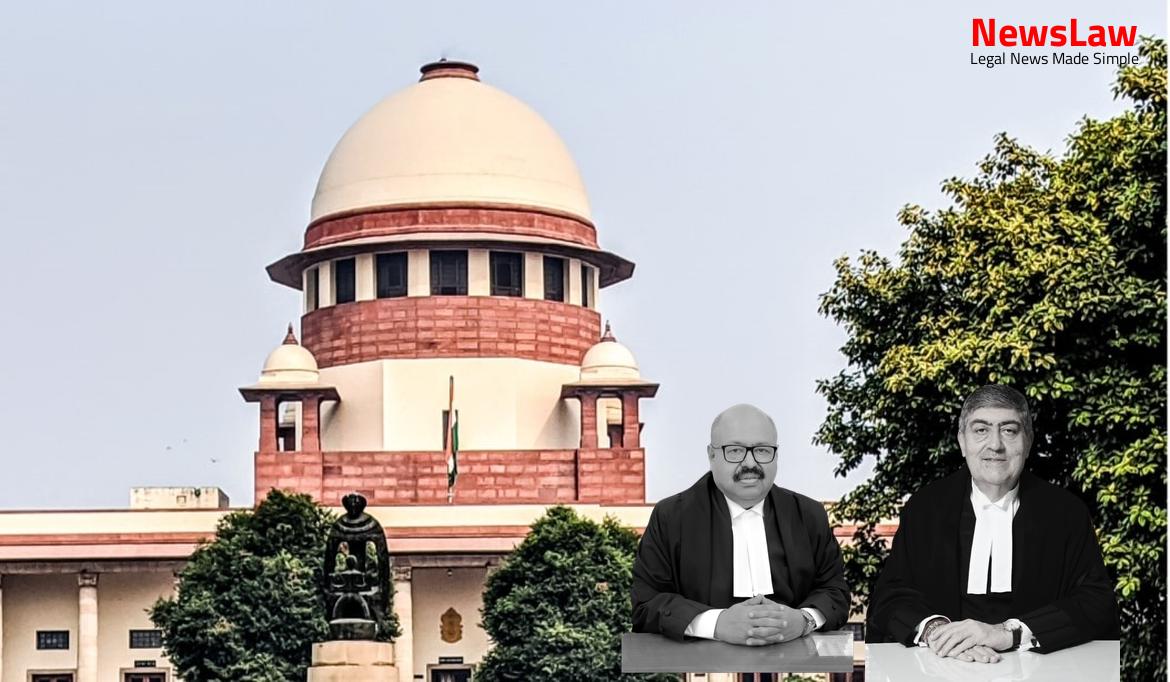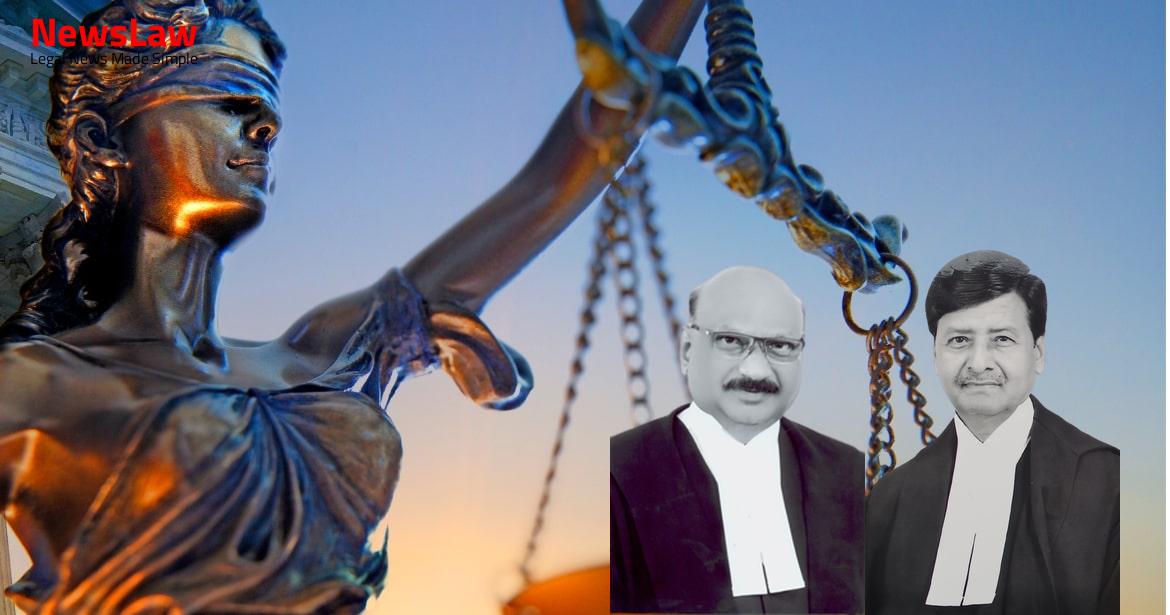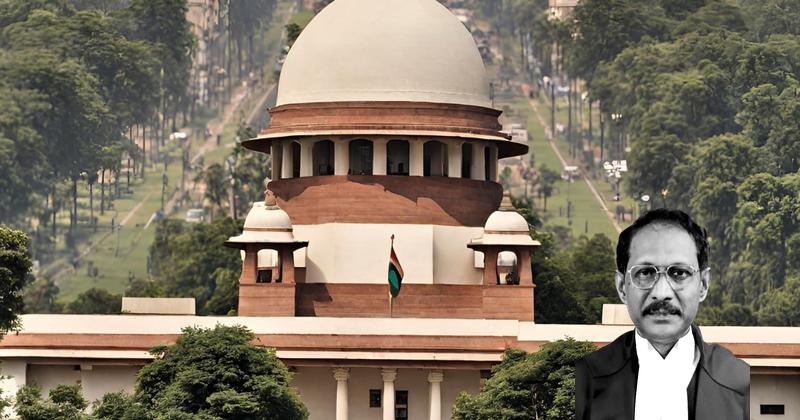The legal case delves into the detailed legal analysis conducted by the court regarding the imposition of a moratorium on pharmacy colleges. The focus is on the court’s examination of statutory powers, fundamental rights, and regulatory measures surrounding the moratorium. Various aspects such as the right to establish educational institutions, the need for valid laws to restrict fundamental rights, and procedural requirements are scrutinized in the court’s analysis.
Arguments
- Shri Maninder Singh, learned Senior Counsel representing the appellant-PCI, argues that the Central Council of the PCI, being a public authority performing public functions, makes its resolutions akin to laws under Article 13 of the Constitution.
- He challenges the exempting of the North Eastern region from the communication and deems it arbitrarily exercised on the grounds of preventing unemployment.
- Shri Rakesh Dwivedi argues that exercising the power to ban without specific statutory provision or regulation is impermissible.
- He outlines the mandatory compliance factors for valid regulations under the Act, emphasizing the necessity of Central Government approval.
- Shri Vinay Navare highlights the composition and powers of the PCI Central Council compared to the AICTE Act, underlining the rationale behind recommending the moratorium.
- He points out the consultation with the Central Government as per the Act, but stresses the need for supporting material and reason for the decision.
- Shri Maninder Singh argues that the power to regulate includes the power to prohibit, citing relevant court cases.
- He references a Bombay High Court decision supporting the moratorium and asserts the legality of the PCI’s actions in preventing uncontrolled growth of pharmacy colleges.
- The argument is made that imposing moratorium is justifiable in the larger public interest, as observed in prior court cases.
- Shri Rakesh Dwivedi and Shri Sanjay Sharawat counter the arbitrariness of the PCI’s actions, alleging mala fide intentions and failure to justify the restrictions imposed.
- References are made to legal precedents supporting the right to establish educational institutions and the requirement for valid laws to restrict fundamental rights.
- Concerns are raised about the lack of substantive compliance with notification requirements and the necessity of Central Government approval for imposing restrictions.
- The expertise of the PCI Central Council is highlighted as a decision-making body capable of acting in the best interests of pharmacy education.
- Overall, arguments focus on the legality, rationale, and procedural aspects of the PCI’s decision to impose a moratorium.
- The contrasting views of legal counsels and the challenges to the PCI’s actions are presented to the court.
- Impugned communication imposing a five-year ban on new pharmacy colleges deemed disproportionate.
- The need for more pharmacy colleges during the pandemic overlooked by PCI.
- High Courts ruled in favor of respondent institutions, citing fundamental right to establish educational institutions under Article 19(1)(g) of the Constitution.
- Moratorium imposed through executive instruction deemed unsustainable in law.
- Petitioners entitled to establish colleges based on promissory estoppel and legitimate expectation.
- PCI’s resolutions found violative of Article 14 as government and Northeastern institutions were exempted from moratorium.
- Cap of 50 pharmacy institutes per state deemed arbitrary by High Courts.
- Council’s decision-making process alleged to be tainted.
Also Read: Presumption of Genuine Endorsements in Cheque Case
Analysis
- The Central Board has the power to frame staff regulations under Section 58(1) of the Act.
- The moratorium on the opening of new pharmacy colleges was put in place by a Resolution of the Central Council of the appellant-PCI, not through regulations under the Act.
- The moratorium has specific conditions including exemptions for government institutions, institutions in the North Eastern region, and states/union territories with less than 50 pharmacy institutions.
- Institutions that had applied for opening colleges in the previous academic session can reapply for the next session with certain relaxations.
- Existing approved pharmacy institutions are allowed to apply for an increase in intake capacity or to start additional courses.
- The argument that staff regulations must only be framed under Section 58(1) is not justified as it is an enabling provision and not a restriction on other methods of framing regulations.
- The right to manage an institution is a right to property and is considered a part of fundamental right under Article 19(1)(g) of the Constitution.
- Minority institutions are protected under Article 30 to establish and administer educational institutions of their choice.
- Statutory corporations can only act within the limits authorized by the statutes creating them.
- Regulations can be made by the State to maintain excellence in educational institutions.
- Regulatory measures are necessary for ensuring orderly, efficient, and sound administration in educational institutions.
- Even executive actions cannot infringe on the fundamental rights guaranteed under Article 19(1)(g) and Article 30, as they must be imposed by a law enacted by the legislature.
- The imposition of restrictions on fundamental rights must be proportional and in the interest of the general public.
- Private unaided institutions, both minority and non-minority, have the right to establish educational institutions but are subject to reasonable restrictions in the interest of the general public.
- The right to administer educational institutions does not include the right to maladminister, and the State can impose regulations under Article 19(1)(g) and Article 30.
- The Resolutions/communications dated 17 July 2019 and 9 September 2019 of the Central Council of the Pharmacy Council of India (PCI), imposing restrictions on the fundamental right to establish educational institutions under Article 19(1)(g) of the Constitution of India, are not valid.
- Any restrictions imposed to prevent mushrooming growth of pharmacy colleges must be done strictly in accordance with the law and in the larger general public interest.
- Applications for D. Pharm and B. Pharm courses require a ‘No Objection Certificate’ from the State Government and consent of affiliation from affiliating bodies.
- The Central Council can consider various factors before deciding to allow or reject such applications, including the necessity to increase the number of institutions in a particular area.
- A blanket prohibition on the establishment of pharmacy colleges cannot be imposed by an executive resolution.
- The appeals filed by the Pharmacy Council of India are dismissed, with no order as to costs.
Also Read: Medical Negligence and Compensation: A Landmark Decision
Decision
- This appeal was filed by Shaheed Teg Bahadur College of Pharmacy challenging an order dated 23 December 2021.
- The order was passed by the learned Single Judge of the High Court of Delhi at New Delhi in CM Application No 41337 of 2021 in Writ Petition (Civil) No.175 of 2021.
- Due to the judgment passed by the Court in another case, this appeal has been rendered infructuous and disposed of accordingly.
- No costs were ordered for this appeal.
- Any pending applications related to this appeal have also been disposed of.
Also Read: Remand of Writ Petition for Restoration and Decision on Merits
Case Title: PHARMACY COUNCIL OF INDIA Vs. RAJEEV COLLEGE OF PHARMACY (2022 INSC 965)
Case Number: C.A. No.-006681-006681 / 2022



